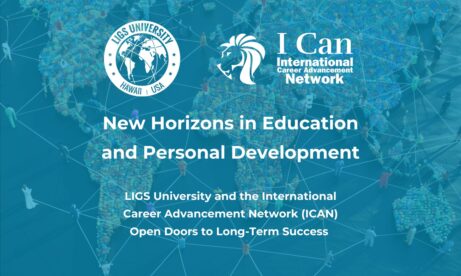
KD: Knowledge Decentralization
A new marketing landscape is emerging. It requires to be in active standby and to have a prospective view to identify what are the trends that have an impact on the marketing evolution, what are the best practices, the sources of innovation and strategies to put in place.
Author: Augusta Ndzana
Annotation:
A new marketing landscape is emerging. It requires to be in active standby and to have a prospective view to identify what are the trends that have an impact on the marketing evolution, what are the best practices, the sources of innovation and strategies to put in place. Based on all the forecasts published in professional publications and specialized blogs, it is also necessary to anticipate these changes internally to ensure an effective coordination. It is therefore crucial to put in place “a set of devices, allowing to distribute, coordinate, control the activities, and guide the behavior of men in the framework of the objectives of the enterprise” Alain Desremaux, structure of the company 1992.
Keywords: Behavior, consumer, changes, consultant, digitals, future, management, marketing, product, services, strategy, organization structure, trends
The Marketing Business School and University – n°16, December 2014 titled:
“The consumer CHANGES, what about Marketers?”
The consumer has indeed changed, certainly, but above all he continues to change. This permanent modifications are not to be taken lightly. A figure illustrates to itself this fact: on average, 5% of a household achieve 80% of a brand’s sales. Therefore, more than ever, it is up to marketers to mobilize their resources and means, to achieve and or maintain objective of competitive performance on a given market in order to create some added value.
As a result, it is necessary to develop a know-how in the customer knowledge. More important, it is crucial to know how to communicate on this value. It is the marketing upon which the responsibility lies.
Then, how to face it, when we know that the digital can allow a company to enter into contact with people with no effective link with a company. As a result, we are witnessing the generalization of the customer relationship management (CRM), prospect relationship management (PRM) and other social customer relationship management (SCRM). However, this challenge requires not only new functions but new profiles of marketers who must update their practices because beyond the information provided by data, appropriate decisions must be taken, thus the introduction of this new concept.
What do specialists think?
- 76% of marketers consider that marketing has changed more in the last two years, that during the last fifty years. This statistic, unveiled during the Digital Marketing Symposium of adobe, early November, said long on the transformations that knows the function.
- The expectations of customers toward brands are increasingly high. It is up to brands to use CRM and DMP tools to establish a personalized relationship with the consumer. The value of offers no longer reside only in its exclusivity, but in its integration in a fluid customer experience, where the consumer is placed in the heart of the experience. For Beatrice Tourvieille, Marketing director, Voyages-sncf.com. There are four pre-requisite to a 360° vision of customers: “very efficient and well equipped channels; the control of the performance; the customization, the coherence between the message and the experience“.
- New professions are emerging: data scientists, chief digital officers… and move closer to the executive. The strong growth of mobiles, the emergence of the connected objects, internationalization of markets are creating opportunities for the development of brands. They must be creative to exploit the potential of these new marketing tools.
In summary, the effectiveness of any marketing strategy of a company depends on the ability to federate its internal forces around a project, to create a synergy between departments –succeed in breaking the barriers- and to promote a common culture. As Charles Darwin stated: “Species that survive are not species the strongest, nor the most intelligent, but those who adapt the best to changes“. And indeed, the real challenge is the change…This is why, the option of KD, can become a good option. What does it means: ”Knowledge Decentralization’”.
To demonstrate this, we have to ask ourselves the following question:
What is marketing?
Let us remember that it is defined as “a function of the organization and a set of processes which is to create, communicate and deliver value to customers as well as to manage relationships with them in order to serve the Organization”. And the marketing management is the science and the art to choose targeted markets, to attract, retain and develop customers by creating value.
The marketing is therefore first and foremost an operational and strategic tool. In reality, the marketing, it is an opportunity and a process designed to create sustainable relationships. For that reason, more than ever, the marketing is a central function in the business of today and tomorrow. And finally the marketing approach, imposes itself as a creator of value as shown in the diagram below.
So what is the ‘Knowledge Decentralization’?
It is a simple concept which is based on the principle of electrons which revolve around a nucleus. In effect, it is a concept which advocates the intensive use and almost exclusive of consultants. Specialist PhD’s managers who will back up the marketing strategy at different stages and whose abilities and skills will be complementary. This method allows to adapt to the needs and helps to ensure a certain degree of effectiveness by a game of productive synergy. Through this, pure knowledge combines to the needs of the business to resolve a specific problem in the short and medium term.
Why a consultant?
Thanks to a large range of skills both hard and soft, added to a sharp expertise in a specific domain, the consultant advises and make a company benefit from new approaches in order to address the strategic issues. He shows in particular, objectivity, availability and reactivity and its constant capacity of re-adaptation is a true asset.
Besides, the words of Hervé Baculard –founder associate at Kea & Partners–, and Michel Noiry –founder associate at ORIGA Consulting & Advisory–, illustrate perfectly the potential and interest in the use of KD.
Indeed, when the one says that “the German consulting market shows significant growth, the global volume of the sector being twice higher than in France today, thanks to the good use of it”, the other rather sees the explanation on the side of the regular recourse to consulting…
Clearly, the need for constant integration of external knowledge seems not only real but also shows results when applied.
This need of ’targeted skills’ is also underlines in the assertion of Rachel Campbell – Global head of people, performance & culture KPMG international–who said that “firms are accessing broader talent pool than ever before. That is one reason, among many, why our focus on building an inclusive culture is essential”. Here, she raises an essential point: the company culture …. the nucleus around which revolve the electrons…
What is a company culture?
The corporate culture comes from the need of a business to ensure consistency, which will become the reference of all its members. It is generally described as “the way things work here“. It is about behaviors, habits, beliefs, customs and norms of a company. It allows to specificity the know-how. But it is particularly necessary to recruit talent.
In the present case, despite the objectivity required from a consultant, the culture of the company is important. Indeed, as a collaborator, accessing the company culture also enable to understand the issues, the challenges, and the strategic directions of the company to be effective.
Why is it necessary?
“The only permanent thing is the change“. According to employment specialists “professional careers will be a succession of missions”. In effect, “today, remain more than 10 years in the same position or the same business is quite rare“, reports Madeleine Fortier, President of Emphasis career and a career consultant. “The regular length is rather of 3 to 5 years”.
However, an executive is a key element of the business, because he federates the workforce and gathers to obtain results. It is therefore his duty to initiate the change. In addition, when there are fast paced changes, it is preferable to focus on values such as knowledge.
Considering, on the one hand that an MBA allows to acquire a strong managerial culture and on the other hand, that non-academic careers and professions are increasingly recognizing the unique skills and experience a PhD brings, this combination do not allow to change the marketing, but to modify the way it is done.
PF*1: Face competitors and develop of the customer’s loyalty
F1: Adapt itself to changes
F2: Remain competitive on the market
F3: Identify clients’ needs
F4: Sell better the products
*PF: Principal function
To conclude, the concept of ‘knowledge Decentralization’ is the beginning sign of changes for tomorrow’s marketing services structure. Far from the digital trends which influence the sector, it nevertheless replies to the need of fluidity and speed in strategic choices that the e-consumers generate.
In the long term, the rule should be: “marketing consultants leave and the products and services stay”, because today we are in the heart of an in-depth transformation of the way the offers are designed.
The anticipation of consumer needs and the customization are only a step of it. A necessary and rapid mutation is in the process of being operated, and it must be continued upstream of any adapted strategic reflection.
The time of “push” and “pull” is over, let’s consider the “inside“.



